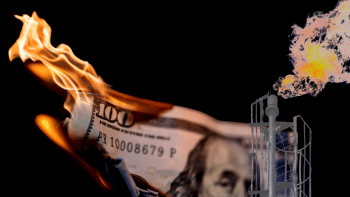Curbing BERC’s authority sets us up for more trouble

On December 1, the government issued an amendment to the Bangladesh Energy Regulatory Commission (BERC) Act, 2003, empowering the power and energy ministry to set fuel and electricity prices under special circumstances. Previously, according to the law, the prices of energy commodities could only be fixed by BERC. This amendment thus alters BERC's position as the sole authority for fixing energy prices in the country.
The idea of a regulatory commission for checks and balances in the energy sector has come about from the well-known Federal Energy Regulatory Commission (FERC) of the US. Over the last two decades, many countries have adopted the idea of an authority to oversee the investments made in their energy sectors – to check if these are consistent with their national goals. In recent times, advocating investments to comply with the mandates of the Paris Agreement on climate change is one of the newer roles of such authorities. In addition to ensuring smooth and affordable energy supply and monitoring energy infrastructure investments, many countries have entrusted these commissions with the role of setting fuel and power tariffs. Since investments made in the energy sector have a direct impact on the tariffs, clearance from the regulatory commission in this regard is extremely important to keep the tariffs low.
BERC's vision is "to create an enabling environment, efficient, well-managed and sustainable energy sector in Bangladesh for providing energy at (a) just and reasonable cost, and protection of consumers' interest and satisfaction through fair practice." Among BERC's many missions are "transparency in energy sector management, cost rationalisation and tariff determination, and enforcement of fiscal discipline in the energy sector." In light of this, the amendment raises several questions: why did the government do it? And how will it impact BERC's key role of tariff determination as set out in its mandate?
The quick and simple answer to the first question is that the government wants to have FULL control over fuel and electricity prices. The emphasis on the word "full" is important because the government already had a fair bit of control over BERC through the process of key appointments and other means. It should also be noted that the government never gave the function of tariff-setting for petroleum products to BERC. As a result, the prices of diesel and petrol could be revised whenever the government desired.

To understand why it was important for the government to introduce this amendment, one needs to understand the present mechanism of price fixation. To set energy prices, the government set up BERC as an independent body in 2003; its chairman and members were appointed by the parliament and they were given judicial powers. This commission would set the price of energy (mainly gas and electricity) without any interference from the government, using calculations and formulas following certain guidelines. One very important clause in the guidelines is that the commission must hold a public hearing before setting prices. Of paramount importance in the functioning of BERC is the sacred task of protecting consumers.
Before BERC was set up, tariff-fixing was done by the ministry with support from the utilities – Petrobangla for gas and Bangladesh Power Development Board (BPDB) for electricity. The problem in this process is three-fold: 1) they may arbitrarily set high prices and try to earn revenue; 2) the process is not transparent, especially for consumers, whose opinions are not considered; and 3) those responsible for supplying the energy may be doing so in an inefficient manner and making investments that are contrary to lower energy prices.
Following its establishment, BERC had the sole authority to set energy prices; if the government wanted to increase energy prices, they would have to go through BERC, who would first conduct a public hearing to solicit public opinion. It was expected that, through this process, consumers would be able to vent their grievances against utilities and in the process scrutinise their efficiency of operation. BERC was also tasked with closely scrutinising the tariff increase requests before declaring a new tariff. The entire process could take as long as six months, and in most cases the utilities would not get the price increase they asked for.
In this situation, every day that BERC would take to deliberate on the requests would add to the mounting losses. Since BERC needed to follow due process, they were not in a position to hasten their deliberations. In situations where the tariff increase requested is large, this delay in adjusting prices could result in huge losses for the utilities, which the government would have to subsidise. With the amended BERC Act, the government is now able to increase the price quickly, thus avoiding these losses.
However, since the government can now increase energy tariffs by any amount without any sort of public hearing or accountability, consumer rights in various sectors would be seriously threatened. In fact, it would cease to exist, and for all practical purposes, BERC's role would be greatly diminished. The government will then be able to use energy commodities for revenue collection beyond what they are doing through the existing taxes and duties.
In the setting of energy prices, the financial performance of production, transmission and distribution companies come into play in a big way. If these companies do not perform efficiently and also make bad investments, electricity prices will be adversely affected. Without an independent regulator, these performance issues may never be questioned. Of course, these companies can claim they have strict performance criteria, but they are never enough to enhance performance mainly because the regulator now is the government, under which all these companies are operating.
BERC has failed to control many wasteful investments made by BPDB. The principal reason for that is that BERC is not sufficiently empowered and independent. Nevertheless, even with BERC's limited power to keep tariffs down by forcing utilities to perform better, the commission over the last decade has been able to achieve a lot with respect to protecting consumers' rights. If nothing else, scrutiny of the production, transmission and distribution companies' performances by BERC and the people through public hearings has revealed a lot about the operational and financial weaknesses of the utilities. These companies have been forced in many cases to control costs, and in most cases BERC has not granted the price increases they requested. If there was no BERC or if it could be bypassed, the situation would have been far worse, and the ministry would accept whatever was presented by Petrobangla and BPDB. The new amendment to the BERC Act implies that the energy sector will lose the independent oversight, and the vital purpose of BERC's function of keeping energy tariffs low will be lost.
Dr Ijaz Hossain is former dean of the Faculty of Engineering at Bangladesh University of Engineering and Technology (Buet).

 For all latest news, follow The Daily Star's Google News channel.
For all latest news, follow The Daily Star's Google News channel. 











Comments